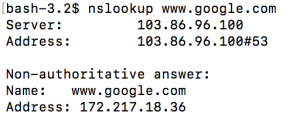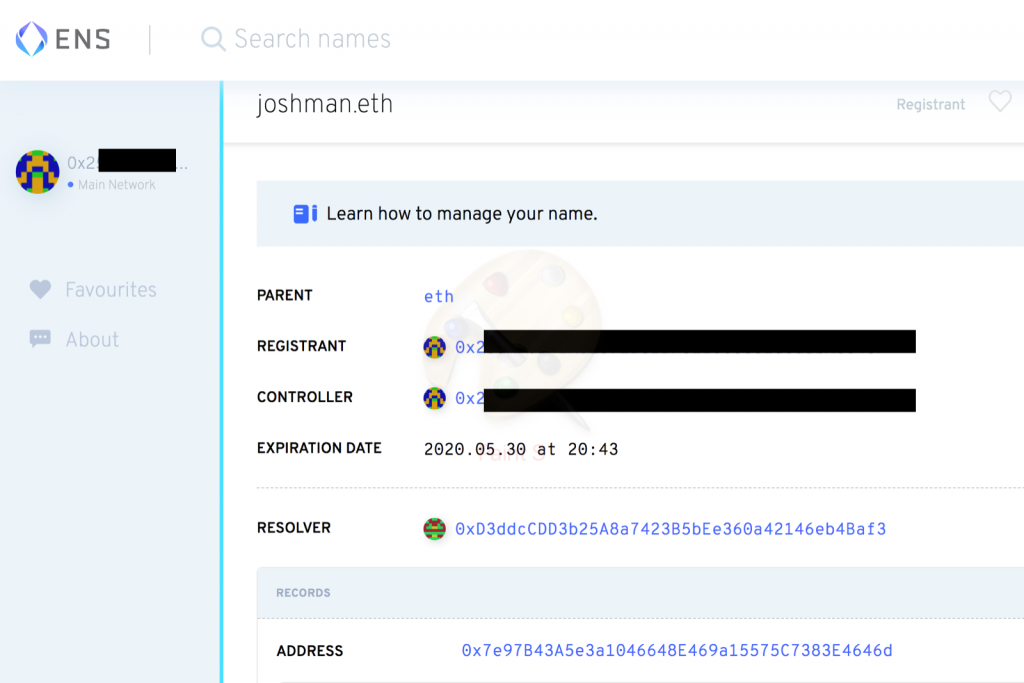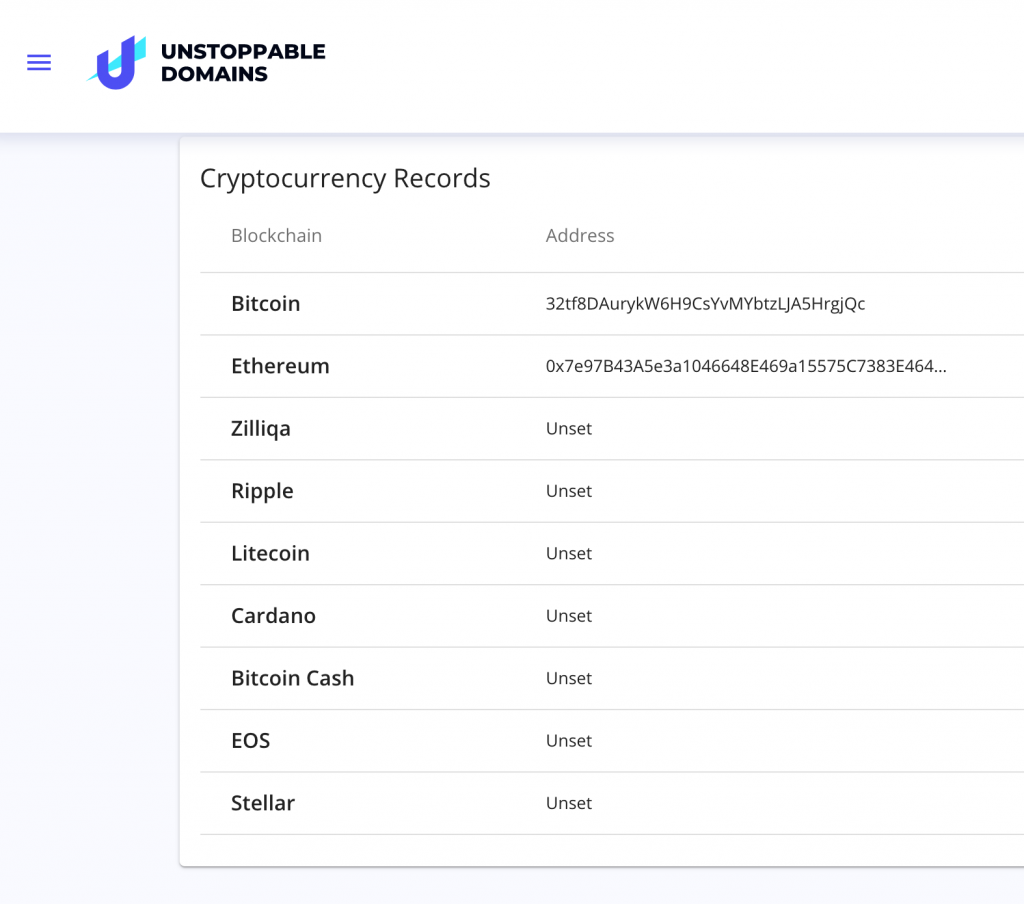
The Problem
Large alphanumeric addresses can be difficult or even impossible to remember.
Take my example Ethereum address (feel free to send ETH here!):
0x7e97B43A5e3a1046648E469a15575C7383E4646d
There is no way an average human could memorize this address.
Internet DNS
Even an typical IP Version 4 Internet address like 172.217.18.36 can be difficult to remember.
This is why we need friendly names to represent these types of addresses.
With the Internet we have the Domain Name Service (DNS). Our previous example of 172.217.18.36 resolves to https://www.google.com/, a commonly trafficked website. You can do a DNS lookup on your own using the nslookup command pictured below.

Google.com is a lot easier to memorize than an IP address right?
IP Version 6 Internet addresses are even worse. Take this example IPv6 address owned by Google: 2001:4860:4860:0000:0000:0000:0000:8844. That is one long address! Using DNS is even more essential for IPv6.
Blockchains and Cryptocurrencies
We have the same issue with cryptocurrencies as we do with Internet addresses.
Take a look at these examples:
STEEM: STM5QC42Bqao7FdFcipfPtL1SUYRxaa9xw1MXfxUhwPhqwGP6o9po
BTC (Segwit): 32tf8DAurykW6H9CsYvMYbtzLJA5HrgjQc
ETH: 0x7e97B43A5e3a1046648E469a15575C7383E4646d
These large addresses are not very user friendly. Let’s take a look at how some blockchains have addressed the problem.
The Solution
The solution is to represent complicated addresses of 32 characters or more with simple names. There are three methods I’ve seen to go about this.
- Build friendly names into your blockchain, like STEEM and EOS.
- Run a dedicated name service to support only your blockchain, like Ethereum and EOS.
- Run a generic name service that supports many blockchains, like Zilliqa.
Let’s take a look at these examples.
STEEM
 STEEM was one of the first blockchains to use friendly names. On the STEEM blockchain these public keys are represented by the simple username @joshman. STEEM’s cousin EOS, also uses friendly names as well and has it’s own separate DNS system.
STEEM was one of the first blockchains to use friendly names. On the STEEM blockchain these public keys are represented by the simple username @joshman. STEEM’s cousin EOS, also uses friendly names as well and has it’s own separate DNS system.
Ethereum
 Ethereum has it’s own DNS service. So which is easier to remember, joshman.eth, or 0x7e97B43A5e3a1046648E469a15575C7383E4646d? Wallets and other applications related to ethereum will soon support these names. If you want to send some ETH to the joshman, you simple enter joshman.eth. You can claim your own ETH DNS address at https://ens.domains. You can see from the example photo, I have registered joshman.eth.
Ethereum has it’s own DNS service. So which is easier to remember, joshman.eth, or 0x7e97B43A5e3a1046648E469a15575C7383E4646d? Wallets and other applications related to ethereum will soon support these names. If you want to send some ETH to the joshman, you simple enter joshman.eth. You can claim your own ETH DNS address at https://ens.domains. You can see from the example photo, I have registered joshman.eth.
Zilliqa
 Or what about joshman.zil? On the Zilliqa blockchain, you can represent 9 or more different wallet addresses. You can see from the example, I have registered joshman.zil, and it represents both my ETH and BTC addresses (so far). You can obtain your own .zil domain at https://unstoppabledomains.com.
Or what about joshman.zil? On the Zilliqa blockchain, you can represent 9 or more different wallet addresses. You can see from the example, I have registered joshman.zil, and it represents both my ETH and BTC addresses (so far). You can obtain your own .zil domain at https://unstoppabledomains.com.
Going Forward
Besides wallet addresses, these friendly names could also represent websites and other services too. A common way for nation states and hackers to take down websites, is to attack or seize their DNS names. With a simple browser plugin, you could query a blockchain instead of a centralized name service. This would make websites almost impossible to take down from a DNS perspective. There are other blockchain-based DNS or friendly name services planned, under development, or in operation as well. It’s not clear which ones will end up winning out in the end, but it will be exciting to watch this technology evolve.
